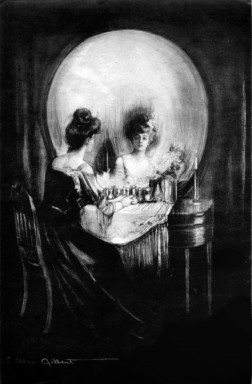Average men get away with rape. Ordinary, garden-variety males bypass penalty for beating their wives and girlfriends, too, and for sexually abusing their children. It is men’s prerogative to harm the women and children in their orbit, because in the patriarchal family women and children are men’s property, at the mercy of men’s whims. Though the law in the United States no longer defines women as men’s chattels, the underlying ideology lingers: as lord & master of the castle available to every male no matter his class – “the home” – a man may rule over the lives of his subjects. He beats his wife; he fondles his daughter: to be careless of the bodies and beings of his underlings is testament to the absoluteness of his authority over them. It’s a pleasure and a privilege: to hurt women, to hurt children. Lowly as they are relative to He Who Is Their Master he need not condescend to consider the feelings or the fates of these subordinates at all.
When an average woman comes forward publicly to announce that a man has raped her, or beaten her or that he molested her when she was small, she is disbelieved and discredited and dismissed, and she is scorned, for it is Woman’s lot to suck it up and to take her lumps in private; she has done wrong to denounce a man. People will say she made up her bogus rape story to make the man look bad or because she wanted money or attention from the man or she imagined the whole thing because she is mentally warped or if something did happen between her and the man, something sordid, it was because she was asking for it, she wanted it, she provoked him—the fault is hers. The man is stainless; it is the victimized woman who bears the taint. In popular parlance this is called “victim blaming” and it is a primary reason most women who suffer male violence do not attempt to incriminate their abusers, their reticence spawning a hushed grove within which men’s abusiveness toward women is permitted to thrive. When a man hurts a woman he trusts she will be too afraid too ashamed to tell so even the vaguest threat of stricture is void.
If unremarkable men are sheltered from repercussion when they hurt women and children by the basic protections afforded them by patriarchal culture, what happens when a remarkable man does violence to a woman or girl? It would be reasonable enough to suppose or to hope at least that the notoriety of the remarkable man might make it more difficult for him to dodge comeuppance—after all, the court of public opinion staffs a sizable jury. But more people learning that a man may have harmed a woman or a child does not equate to more people believing that he did, or caring that he did. The more widely known and well-liked a man is, the more people that know he may have hurt a woman, the less apt he is to ever face consequences. The advantage of being a man compounded with the advantage of public admiration renders him untouchable. By contrast, the victim – whoever she is – is at a serious disadvantage: she is a woman, she is less than he is. His inferior. Should she also be famous, all that her fame guarantees is that she already has plenty of people who hate her, as well-known women never fail to attract rancor (every woman in public is abhorred).
The doggedness with which patriarchal pop culture stands by its man has been on powerful display this year in the cases of three high-profile male artists who waited patiently smirking as accusations of rape, child molestation, and battery slid from the teflon of their status: Michael Gira of Swans, director Woody Allen, and actor Johnny Depp. Continue reading “pop patriarchy stands by its man”
